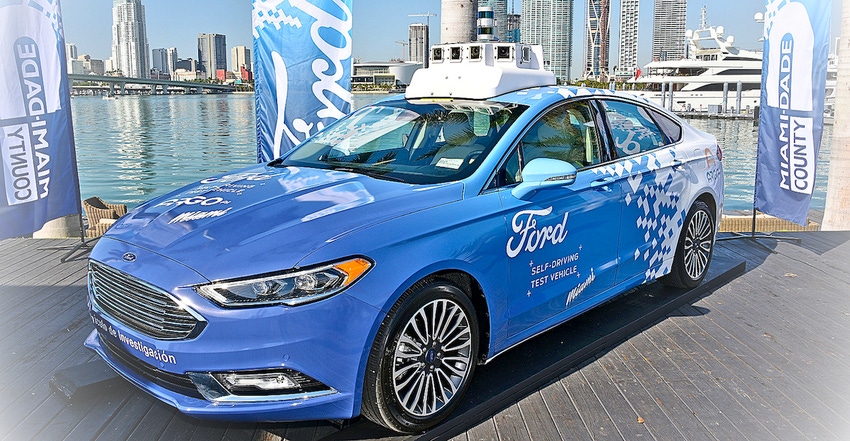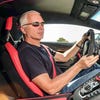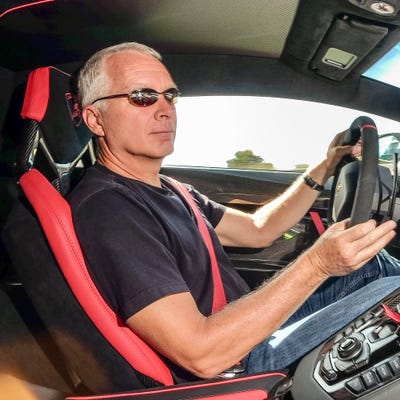Latitude AI will focus on hands-free, eyes-off-the-road automated driving for Ford.

After backing out of its partnership with Volkswagen in Argo AI, Ford is forging a new path toward autonomous driving assistance by founding a new wholly-owned subsidiary called Latitude AI.
Like Argo, Latitude is headquartered in Pittsburgh, Penn., a longtime autonomous driving hub thanks to the Carnegie-Mellon University Automotive X-Prize team that pioneered self-driving cars. There are additional engineering hubs in Dearborn, Mich. and Palo Alto, Calif., and a highway-speed test track facility in Greenville, S.C.
While the shine has gone off autonomy after the technology has failed to meet the grand predictions of advocates like Elon Musk, this does not mean that it will never happen. This is why Ford is adding this team of machine learning, robotics, software, sensors, systems engineering, and operations to its development efforts in automated driving technology.
Notably, the experts at Consumer Reports named Ford’s BlueCruise hands-free driving technology the best of its breed. I’ve had better experience with GM’s Super Cruise, but certainly, the CR ranking is credible and BlueCruise has accumulated more than 50 million miles of hands-free driving.
Ford points out that transportation analytics firm Inrix says that the average American driver spends nearly 100 hours a year sitting in traffic, making efforts to help those people reclaim some value from that time a priority. The deep experience and talent in our Latitude team will help us accelerate the development of all-new automated driving technology – with the goal of not only making travel safer, less stressful and more enjoyable, but ultimately over time giving our customers some of their day back," explained Doug Field, Ford’s chief advanced product development and technology officer.
It is the practical application of artificial intelligence to assist drivers rather than concentrating on the fully autonomous dream that is the purpose of Latitude, in contrast with Argo AI’s goal of developing robo-taxis. Ford brought over about 550 employees from Argo AI covering areas such as machine learning and robotics, cloud platforms, mapping, sensors and compute systems, test operations, systems and safety engineering. Their experience in automated driving, including software development tools and infrastructure, is pivotal for advanced driver assist systems (ADAS).
“The fact that most of the staff has come directly from Argo means less disruption for them,” observes Sam Abuelsamid, Principal Analyst, E-Mobility at Guidehouse Insights. “They might even be taking over Argo’s offices,” he speculates. “Anything is possible.”
In addition to the ease of recruiting future employees from Carnegie Mellon and collaborating with the researchers there, locating the company in Pittsburgh also provides the benefit of letting Latitude work like a startup rather than being overwhelmed by the parent company, as could happen more easily if it had been located in Ford’s hometown of Dearborn, Abuelsamid points out.
Sammy Omari, executive director of ADAS Technologies at Ford, also will serve as the CEO of Latitude. Peter Carr is appointed chief technology officer, overseeing Latitude’s product and technical development, and David Gollob is named president, with responsibility for business operations.
“We believe automated driving technology will help improve safety while unlocking all-new customer experiences that reduce stress and in the future will help free up a driver’s time to focus on what they choose," said Omari. “The expertise of the Latitude team will further complement and enhance Ford’s in-house global ADAS team in developing future driver-assist technologies, ultimately delivering on the many benefits of automation.”
“They can leverage a lot of the lessons learned at Argo and bring that into hands-free and eyes-off products,” says Abuelsamid. Latitude’s prospects are much better than Argo’s because of its more realistic goals, he said. “The prospects of getting a profitable business at scale [with Argo’s self-driving taxi business] by the end of the decade is slim,” he concludes.
In 2019, when Ford announced plans for Argo AI, it seemed to cement Pittsburgh’s position as the “Capital of Autonomy.” "Carnegie Mellon has always been at the leading edge of fundamental research on self-driving cars, and this new agreement with Argo AI will help us continue to expand the frontiers of these important technologies," said J. Michael McQuade, CMU's vice president of research, at the time. "With Argo's support, our faculty and particularly our students will be better prepared to tackle the next wave of technical challenges facing autonomous vehicles." It seems like this would apply equally well to Latitude AI.
About the Author(s)
You May Also Like





